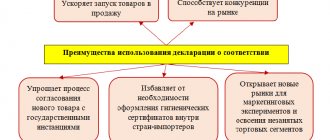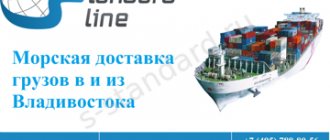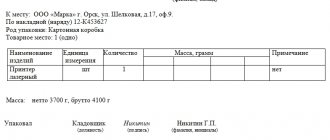FCS class decisions are related to the grouping of goods according to the HS code system. The product range of foreign economic activity is the same for the countries of the Customs Union, of which Russia is a member.
The classification decision is focused on assigning a common HS code to a consignment of goods consisting of many components or various pieces of equipment.
GPL Cargo is ready to help any company participating in foreign trade activities obtain a FCS class decision. This service is especially relevant:
- for enterprises planning or carrying out modernization of production;
- commercial enterprises operating in different sectors of the economy and segments of the Russian market;
- suppliers (importers) of technological equipment for agricultural, processing, metallurgical, engineering, oil and other industries.
Registration and receipt of a classification decision
After the client applies and concludes an agreement for the provision of GPL Cargo services, the company’s authorized specialist draws up an application, correctly filling out the technical and design sections. Then sends it to the customs authority. The classification decision is approved by the FCS commission. The final document received by the foreign trade participant allows:
- simplify and speed up cargo clearance;
- reduce the amount of customs duties;
- without problems at the border, transport a consignment of goods according to general HS codes.
Obtaining a solution class for different suppliers is an opportunity to reduce paperwork, since the algorithm excludes the procedures for issuing declarations, certificates, permits and other papers required in other situations. As a result you can:
- reduce taxes and ensure zero duties;
- reduce the period for preparing accompanying documentation and the associated financial costs.
Targo
The most complex product for classification purposes is the technological equipment of individual production lines and entire plants, the supply of which in individual components is carried out over a long period of time.
Complex technological equipment is not a single product in the strict sense of the OPI TN VED. This is a certain kind of convention, a legal fiction associated with the fact that technological equipment can consist of tens or even hundreds of components interconnected not physically, but functionally, by a single technological process.
Therefore, customs authorities carefully check the correct classification of such goods. The composition of complex technological equipment, for the purposes of classification according to the Commodity Nomenclature of Foreign Economic Activity, will include a set of components that is minimally necessary for the operation of the equipment. The remaining components are considered by customs authorities as independent goods, for which classification is carried out separately (as a rule, in subheadings that involve higher rates of customs duties than for equipment as a whole).
When classifying this type of technological equipment, an important role is played by a detailed technical description of the product, as well as drawings, operating instructions, product specifications, and other documents describing the functional purpose, technical characteristics and components of the product. The indication by the manufacturer or sender of the goods in such documents of the goods code according to the Commodity Nomenclature of Foreign Economic Activity does not matter when the customs authorities check the correctness of the classification.
In this case, we recommend obtaining a classification decision
Federal Customs Service of Russia. From 09/04/2018 The procedure for making such decisions on the classification of goods is provided for in Article 16 of the Federal Law of August 3, 2018. No. 289-FZ “On customs regulation in the Russian Federation and on amendments to certain legislative acts of the Russian Federation.”
The declaration for goods in respect of the last component of the goods in complete or complete form must be submitted within a period not exceeding 2 years from the date of registration of the declaration for goods in respect of the first component of such goods. This period may be extended by the customs authority for one year upon a written reasoned request of the declarant and renewed annually, but cannot exceed six years from the date of registration of the declaration in relation to the first component of such goods.
Advantages of obtaining a single classification decision:
− Simplification of the process of performing customs operations.
− Application of the import customs duty rate in relation to equipment to all its components.
− Possibility of making changes to the classification decision regarding the composition of equipment components.
− Possibility of including into a single classification solution: lubricants, anti-corrosion coatings, installation materials, etc.
− Obtaining one permit for import into Russia.
Our practice shows
that this is the most convenient and progressive way to import complex multi-component technological equipment.
We will provide
all necessary consultations, assistance in preparing a package of documents and information, as well as full support until you receive a classification decision.
Price and terms for obtaining class decisions
The cost of services and the timing of class decisions are determined by the volume of work. The price is set for each client after discussing significant factors.
GPL Cargo speeds up the process by preliminary studying the open and closed FCS databases. Information from these sources makes it possible to identify the possibility of classifying similar nomenclatures into a single code. The fastest way to obtain a class solution for different suppliers is also facilitated by well-established interaction schemes between GPL Cargo and customs authorities. As a result, the document processing period and the client’s expenses are minimized.
In addition, GPL Cargo is ready to provide advice on a variety of issues: for which goods a class decision is issued, which division of the Federal Customs Service of the Russian Federation should be contacted, how to quickly issue a document, what savings in customs duties can be obtained.
Brico Customs LLC offers services for obtaining classification decisions of the Federal Customs Service of the Russian Federation
A preliminary classification decision of the Federal Customs Service of the Russian Federation allows you to obtain a classification of goods in accordance with the Commodity Nomenclature of Foreign Economic Activity of the Customs Union in cases where you and/or the customs authorities have difficulties determining the Commodity Nomenclature of Foreign Economic Activity code, or in cases of controversial situations when the opinion of the customs authority in which your the company carries out or intends to carry out customs clearance, does not coincide with your opinion on the classification of the goods to one or another sub-item of the product nomenclature. In addition, the presence of a preliminary decision significantly speeds up and simplifies customs clearance, since the inspector at the customs post when classifying goods is limited to simply comparing the information contained in the classification decision (mandatory for it) with the goods presented for customs clearance and the relevant documents. A preliminary decision on classification can be obtained before the import of goods into the customs territory and is mandatory for all customs authorities of the Russian Federation. The validity period of the classification decision is 3 years. To order the service, we invite you to fill out an application for a classification decision and send it to us.
Classification decisions regarding machinery and equipment supplied in the form of separate components - allows you to optimize costs when importing machinery and equipment in an unassembled or disassembled form, including incomplete or unfinished form, in cases where deliveries are made in several (many) lots and their one-time submission for customs clearance is impossible or economically infeasible due to the peculiarities of manufacturing, transportation or installation. At the same time, it is possible to pay customs duty and VAT at minimum rates (in most cases, the duty rate on complex equipment and machinery imported under the same HS code is 0% or 5%, while the duty rate on individual components and parts is from 5% to 20%, also for many types of complex equipment the import VAT rate is 0%, and for individual components and parts of such equipment the VAT rate is 18%).
The presence of a classification decision makes it possible to limit oneself to obtaining one (single) certificate of conformity for all imported equipment if certification is required upon import; in case of non-simultaneous import without a classification decision, as a rule, a separate certificate must be obtained for each individual component or part of the equipment. The overall costs of declaring and classifying goods are also reduced, because there is no need to declare each item separately. The period during which it is necessary to complete customs clearance of all components should not exceed one year from the date of commencement of customs clearance of the first shipment. You can order the service by filling out an application for classification of goods in unassembled or disassembled form and sending it to us.
Professional assistance in obtaining class solutions
The success of the scrupulous and labor-intensive work on preparing class solutions is guaranteed by the qualifications of GPL Cargo employees:
- deep knowledge of Russian customs legislation;
- many years of professional experience;
- awareness of technical expertise
- the ability to adequately reflect the technical features of the goods declared for inclusion in the shipment for transportation;
- the ability to competently argue for the correctness of the class solution in a format appropriate for the Federal Customs Service.
Preliminary classification decision
The problem outlined above can be solved by the company obtaining a preliminary classification decision from the Federal Customs Service. This is a common practice among companies that conduct foreign economic activity on an ongoing basis. Since 2012, regional customs departments have issued and assigned a single code corresponding to the Commodity Nomenclature of Foreign Economic Activity.
Correctly assigned code and its advance assignment allows the company to know in advance the amount of customs duties and other payments, as well as to determine opportunities for non-tariff settlement. In addition, a preliminary class solution allows you to use various risk management techniques, creates a reserve of time for preparing additional papers, and so on.
The decision on the class of goods is made by the regional customs department within three months from the date of submission of documents. This is quite a long period, but a decision issued in this way will be binding on every body of the Federal Customs Service of the Russian Federation. The document is valid for three years; the code indicated in it cannot be challenged by customs officials.
Code for hybrid
— This year it became possible to receive a preliminary decision on the classification of goods in electronic form through the applicant’s “personal account” on the Unified Portal of State and Municipal Services (functions).
The applicant can track the progress of the provision of public services in his “personal account”. As soon as the preliminary decision is made by the customs authority, it is sent to the applicant’s “personal account” automatically.
Participants in foreign trade activities can determine in advance the amount of required customs duties and clarify non-tariff regulation measures. Planning significantly facilitates the work when carrying out a foreign trade operation, including at the declaration stage, and reduces the likelihood of errors. And although a state fee of five thousand rubles is charged for making preliminary decisions, the decision is valid for three years from the date of its adoption. By the way, in other EAEU countries the cost of the service may be higher. In Belarus, for example, it is about eight thousand rubles in equivalent. Preliminary classification decisions can be obtained for any goods. The participant in foreign economic activity (FEA) decides whether to receive it or not. As a rule, preliminary decisions are obtained for new, complex, high-tech, innovative, chemical products.
How quickly can I get a solution?
— The period according to administrative regulations is 90 days, but the average period is 26 days. We have reduced the timeframe by maximizing the removal of administrative barriers, providing services electronically and reducing the amount of paperwork. The name itself suggests that the service is received in advance. A prudent participant in foreign trade activities, when developing a business plan, is interested in having a preliminary decision on classification not only before the arrival of the goods, but even before concluding a foreign economic transaction. It is for such entrepreneurs that we created this mechanism.
Can an application for a classification decision be made to any customs authority or only to the place where the goods will be shipped?
— Currently, regional customs departments and the Central Energy Customs for their group of goods have the authority to make preliminary decisions on the classification of goods. By the way, in recent years we have expanded the range of bodies that can provide such a service. Applications can be submitted to any RTU of the choice of the foreign trade participant, regardless of which customs authority will release the goods. The procedure for making preliminary decisions on the classification of goods is convenient for business, since a participant in foreign trade activities can submit an application and, accordingly, receive a preliminary decision made by the authorized customs authority at the place of its registration. Having a preliminary decision, a foreign trade participant simplifies the declaration process and reduces the likelihood of errors.
There are a lot of hybrid things now. Sometimes it is difficult to understand what is in your hands - a camera, a phone or a computer? How is it possible to determine the code affiliation of modern multifunctional devices?
— We regularly face the problem of classifying multifunctional devices and multicomponent products. For example, the well-known tablet. This is a computer, a camera, and a means of communication, with its help you can listen to music and watch movies. In a word, a complex device. And the issue of their classification is complex. But there are rules of interpretation; they help classify a product that can be classified into several product items. First of all, you need to establish which of the components of the product gives it its main property. This requires a detailed consideration of the entire set of characteristics and consumer properties of goods and the functions they perform. The basic rules of interpretation are used throughout the world. With all the variety of complex things, customs officers of all countries have common approaches to their classification.
Do foreign trade participants often try to minimize customs duties by manipulating the product code? How serious are such violations from a legal point of view and dangerous for the economy?
— Statistics speak about this. For 9 months of 2015, 28,095 decisions on the classification of goods were made, of which 20,520 decisions on the classification of goods resulted in additional customs duties in the amount of 4.436 billion rubles. For example, in April of this year, the Central Energy Customs made two decisions on the classification of goods. In the declaration, it was declared as diesel fuel, but in fact it was a different product - a middle distillate containing petroleum products of at least 70% of the mass. Additional customs payments amounted to 66 million rubles. At another time, the same customs office made seven decisions on the classification of crude oil. The change in the Commodity Nomenclature of Foreign Economic Activity code entailed additional charges of customs duties totaling RUB 925 million.
In April of this year, Tyumen customs, after the release of the goods, made a decision on the classification of a mobile self-propelled drilling rig for oil and gas production with an additional charge of 22.8 million rubles in the form of customs duties.
Do you monitor the quality of decisions made by customs authorities regarding the classification of goods?
— Ensuring the legality and validity of decision-making on the classification of goods is one of our priorities. In 2014, customs authorities made more than 40 thousand decisions on the classification of goods. The share of appealed classification decisions in 2014 was 1.7%, or 736 decisions. For comparison: in 2013, out of more than 32 thousand decisions made, 1,586 classification decisions were appealed, amounting to 4.1%. As you can see, the picture has improved 2.5 times over the year. With an increase in the number of decisions, there is a clear decrease in the proportion of appealed decisions. We take the analysis of negative judicial practice seriously. Controversial issues regarding the classification of the most significant goods, which are disputed in court not in our favor, are brought to the working group of the Joint Board of Customs Services of the member states of the Customs Union on issues of classification of goods. The development of unified approaches to the classification of goods takes place in close cooperation with our colleagues from Belarus and Kazakhstan, and more recently also from Armenia and Kyrgyzstan.
Do you accept international experience in classifying goods? Do you take into account the opinions of colleagues from the EAEU countries?
— Of course, the experience of classifying goods in other countries and international organizations is very important for us. After all, the basis of the Commodity Nomenclature of Foreign Economic Activity of the EAEU is the international convention of the World Customs Organization on a harmonized system for the description and coding of goods. At each session, decisions are made on the classification of individual goods, on the interpretation of the provisions of the nomenclature, and on explanations of the harmonized system. This makes it possible to realize the potential of a harmonized system as the “language of international trade”. But at the global level, our proposals do not always meet with unambiguous understanding. Recently, within the framework of the World Customs Organization, at the Committee on the Harmonized System, we tried to give an unambiguous interpretation of what a crude oil product is. But in order to normalize this concept, to make it understandable and transparent, a number of countries, including the United States, Saudi Arabia and the European Union, sharply opposed it. Therefore, we turned to the Eurasian Economic Commission to define crude oil products at the regional level, so that the same product in the EAEU countries would be classified uniformly. Equal and fair rules of the game are important for market participants, we understand this well. I am confident that a uniform and correct classification of goods meets the interests of both business and the customs services of our countries.
TEXT. Infographics: Anton Perepletchikov/Elena Shmeleva
What is a classification decision or how to reduce import costs?
Are you planning to import complex multi-component equipment? Below you will learn how to reduce the costs of related customs procedures.
Both when purchasing new equipment, upgrading existing equipment, or completely re-equipping an enterprise, a detailed study of the project is required starting from the early stages. Its goal is to reduce the risks and costs of project implementation to the minimum possible values.
To significantly minimize costs, it is possible to register imported equipment according to class decisions: classification decision
(briefly - KR), or
a preliminary decision
(RPR, pre-decision) issued by the Federal Customs Service of Russia and/or RTU.
Using this design method saves 12-18%
(on average; in some cases significantly more)
of the total amount
of the supply contract.
And for a wide range of equipment items, it is possible to receive a preferential rate based on the amount of VAT paid
- up to
complete exemption from its payment
. Besides this, there are a number of other advantages.
Simplified declaration of equipment, minimal (down to zero) costs for certificates and various types of permits, payments to customs, etc. companies participating in foreign trade activities can obtain using several different types of classification solutions
. Below are the two most common varieties:
- Classification decisions
(class decisions, KR) for goods and equipment that are imported/exported disassembled, unassembled, unfinished, dismantled or incomplete.
Only the Federal Customs Service of the Russian Federation (Moscow) has the right to make decisions on such goods. It is beneficial to receive this type of class decision if the import of a disassembled complete product is carried out in the form of separate batches and over a long period of time, and also when customs declaration of each imported batch is carried out. That is, when it is not economically profitable to accumulate all batches of temporary storage warehouses for consolidation with the submission of one declaration after their accumulation. This type of solution can be used in the only customs authority where clearance takes place.
- RPC or preliminary decisions
(pre-decisions) on the classification of goods and equipment.
The regional customs departments of the Federal Customs Service (i.e. RTU) have the right to issue this type of decisions (pre-decisions). These decisions can be applied during declaration in any case. authority of Russia for no more than three years from the date of issue. Pre-decision (RPR) is used to declare all goods (equipment) in the only place. declarations. It is best suited when importing a complete product in a single batch, as well as when accumulating several batches at a temporary storage warehouse and submitting a declaration of goods upon completion of the import of the final batch.
Advantages of class solutions (Classification solutions):
- significant savings in money when the importer pays customs duties. The reason is that in many cases, for complex technological equipment, a preferential import duty rate of up to 0% is determined. In addition, for some types of high-tech equipment, complete exemption from VAT is also possible (the List is defined in the Russian Federation Regulations dated April 30, 2009 No. 372);
- significant savings in time and money spent on certification of imported goods or parts of imported equipment, and on obtaining a number of documents related to non-tariff regulation. This is due to the fact that declarations of compliance with the requirements of technical regulations of the EAEU, certificates of conformity and other permitting documents of FSTEC, the Ministry of Industry and Trade, etc. with this method of import, equipment components are not processed at all (not required by regulatory authorities);
- minimization of time and significant simplification of customs clearance procedures, since all imported equipment components are declared with one product code according to the Commodity Classification of Foreign Economic Activity of the EAEU;
- the ability to make changes to the class decision both in terms of the quantity (both downward and upward) of imported parts of equipment (directly during the import process) and in their composition. It is possible to make adjustments to the names and quantities of components, as well as to the units of measurement used, etc. It is also possible to supplement the equipment with lubricants, anti-corrosion and other coatings, special tools for installation, assembly and maintenance, etc.;
- when using the class solution, quarterly VAT refunds are possible - there is no need to “freeze” money for the entire import period;
- The import of various parts of equipment can be made within six years from the date of registration of the application for the conditional release of the first batch of goods.
Advantages of a preliminary decision on classification (so-called pre-decision, PKR):
- the risk of changing the code after the product is released is completely eliminated;
- there is no risk of administrative liability for false declarations;
- provides a guarantee of unimpeded customs clearance according to the confirmed EAEU HS code throughout the entire territory of the states of the Customs Union that has adopted it;
- The import of goods with a confirmed EAEU HS code is permissible within three years from the date of receipt of the code;
- the need to obtain expensive certificates, examination reports and opinions issued by expert institutions on the classification of goods disappears.
Thanks to close interaction with our company’s partner, the official customs representative, we have successfully completed projects for the implementation of foreign trade contracts (turnkey import) by obtaining classification decisions for equipment such as flare units for the oil and gas industry, a microprocessor manufacturing plant , technical re-equipment of a cardboard machine line (Arkhangelsk region), a line for the production of ceramic tiles (Kaluga), a cement production plant (Kaluga), a line for the production of wood chips (Ust-Ilimsk), a line for growing mushrooms ( Tula region), equipment for growing vegetables (Volgograd region, Kaluga region), equipment for an industrial fish hatchery complex for growing fish (Astrakhan), a plant for the production of bricks and gas blocks (Nizhny Novgorod), etc.
has been operating since 2010 and provides a wide range of consulting services. The primary focus is consulting on issues related to foreign economic activity and customs legislation of the Russian Federation.
We provide comprehensive comprehensive consultations related to both the direct receipt of decisions on classification, preliminary decisions, decisions to amend the decision in accordance with Art. 107, 107.1, 108 of the Federal Law of November 27, 2010 No. 311-FZ “On customs regulation in the Russian Federation”, and at the stage of preliminary preparation for these procedures. Our employees have extensive experience in the field of customs legislation and the practice of its application, which allows our clients to receive guaranteed results.
In order to competently answer your question regarding choosing the appropriate type of class solution and discussing possible nuances regarding the cost and timing of services, we need detailed information about the delivery schedule, composition and functions of the imported equipment. The legally established period for consideration and making a decision on an application for decisions sent to the Federal Customs Service/RTU is up to 90 calendar days. Practice shows that today the actual period is 55-65 days. The possibility of receiving an application in a shorter time is also being discussed.
GLX Consult
Services for obtaining a preliminary classification decision of the Federal Customs Service (FCS) for organizations operating in the industrial and agricultural sectors that need to move multi-component goods through customs. This document, usually called a solution class, assigns a code to the entire batch and makes it easier for it to pass through the terminal. Let's take a closer look at why it is needed.
It is known that in order to cross the border, the cargo must be assigned a code of the Commodity Nomenclature of Foreign Economic Activity (TN FEA) - a classifier of goods that will be recorded in the consignment note. This is called classification. It is important to choose the right code that is complex. Depending on it, a duty will be assigned.
When goods pass through customs, the inspector, using the same goods classifier, checks this code. When issuing a code, additional documents are required. This is where disagreements may arise between the customs authorities and the declarant regarding the correctness of the assigned code, and, therefore, the amount of the duty charged.
Differences of opinion between the parties are common on the ground and are usually in favor of increasing the amount of payments and providing additional documents. Dispute resolution is possible in court with the outcome not necessarily in favor of the declarant. All this lengthens the processing of customs documents.
The efficiency of a customs post is assessed by the amount of funds collected for the budget, which may explain the inflexibility of its position with assigning a code in complex cases with ambiguous interpretation of the code. A completely different class decision can be made by higher-level organizations of the Federal Customs Service and the Regional Customs Administration (RTU), if a request is sent to them. They can independently and independently make a classification based on the available materials and the declaration of the declarant. As a result, they can issue a class decision to the applicant, which avoids disputes at customs. This document is accepted at customs and the customs officer no longer checks the cargo according to the HS classifier. The cargo is processed automatically based on the class decision. This simplifies the procedure for crossing customs and saves the declarant’s money. The class solution is valid for 3 years.
Today, many participants in foreign trade activities are striving to obtain a class solution and this trend is progressing. As the data shows, about 40% of requests to the Federal Customs Service relate to complex high-tech equipment. There are many requests for large equipment supplied disassembled in batches of different parts with a time gap. All these parts can go through a single document.
To obtain a class decision, it is important to write the application correctly and supplement it with descriptions and, if necessary, drawings. If there is not enough information, then consideration of the application is delayed, and it is even rejected. Our company provides services for selecting documents and writing applications.
The specific work is as follows: • Preliminary assessment of the client's financial benefits. Experienced specialists will be able to obtain document execution with minimal duties and taxes. • Selection of necessary documents. Class decisions for similar products will be analyzed. Specialists will give an adequate description of the product characteristics that is understandable to the Federal Customs Service. • Preparation of an application to the Federal Customs Service. Includes preparation of technical and design documentation. • Obtaining a class solution in the shortest possible time.
Our company will free the client from unnecessary hassle of paperwork and guarantees receipt of a class solution.







